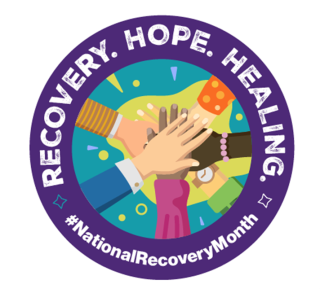When I was asked to write a blog about nutrition for ADHD I thought “How on Earth am I going to condense this complex iceberg of a topic into a concise, easily digestible blog?” (No pun intended). With a little guidance and a lot of thought, I came up with something that I think can help people living with ADHD out there understand and address some common nutrition concerns we see in this population.
People living with ADHD are statistically more likely to have disordered eating patterns than neurotypicals. This is sometimes related to medication side effects (looking at you, stimulants) and sometimes more about being easily distracted and “forgetting to eat”. Having a nutrition issue related to ADHD symptoms or meds doesn’t necessarily mean someone has an eating disorder, though they are often co-occurring.
A meta-analysis found that people with ADHD are almost 4 times more likely to have an eating disorder than non-ADHD controls. The same study found that people with eating disorders are about 2.6 times more likely to have ADHD than people without eating disorders. (1) In a study of children and adolescents with ADHD, about 31% of kids with ADHD were considered “at risk” for developing eating disorders, determined by the EAT-26 screening. Whereas only 12% of kids in the control group were considered at risk. (2)
The binge eating, purging, and out of control eating disorder subtypes are more strongly correlated with ADHD than the restrictive types. Research on the connection between ADHD and ARFID (extreme picky eating) is limited, but I suspect we’ll see more information on that relationship in the near future.
Clearly there’s a strong connection between ADHD and disordered eating which seems to involve multiple factors such as impulsivity, poor interoception, dopamine reward pathways, executive function abnormalities, and mood issues.
Some common nutritional issues we see in people with ADHD include:
- Having trouble keeping to an eating schedule, being easily distracted, and forgetting to eat which can eventually develop into a habit of inadequate or chaotic eating.
- Having food sensitivities: either metabolic such as food allergies or sensory such as strong preferences and aversions. The correlation between food allergies and sensitivities and ADHD is not a coincidence, but that’s a topic for another blog.
- Sensory processing difficulties such as noticing and interpreting hunger, thirst, and fullness. Trouble with interoception (awareness of internal body signals) can lead to undereating, overeating, food aversions, or an unusual relationship with food.
- Impulsivity which can potentially lead to binge eating, purging, or exclusively eating hyper-palatable (artificially extremely pleasurable) foods to the exclusion of everything else. This is related to differences in the dopamine reward pathway.
- Medication side effects can also cause a notable decrease in appetite which can lead to inadequate nutrient intake.
It’s important to know if it’s the ADHD itself causing the eating issue or the side effects of medication (or both). The root cause of the problem will determine which approaches will most effectively yield the desired result: improvement in eating habits and overall health.
If the ADHD symptoms are creating the eating issue some things you can try are:
- Eating on a schedule by pre-determining set meal and snack times. This prevents distraction, impulsive chaotic eating, and the tendency to “forget to eat” which can spiral into an unhealthy habit of chronically low intake. Some of my clients have to set alarms to remind themselves to eat at first. This can be helpful in the beginning and is usually no longer needed once the eating schedule becomes habitual.
- Having designated meal and snack locations can also help, as it creates an association between a specific location and the act of eating. For example, eating meals at the dining table and snacks at the kitchen counter instead of taking food into your room or dragging a shake around the house. Boundaries around meal and snack locations prevent haphazard eating which can result in mindless overeating or ruining one’s appetite causing them to refuse a meal later.
- Discovering foods you enjoy that are relatively easy to prepare and eat in each food group, which of course can be a journey in and of itself!
If ADHD medication side effects are creating the eating issue, some things you can try are:
- Eating a substantial meal before taking the medication.
- Mechanically eating during the time when appetite is artificially low. Mechanical eating means making yourself eat because you know you need to whether you have an appetite or not. Many people on stimulant meds practice mechanical eating on a schedule to get their nutrient needs met despite predictably low appetites.
- Eating a substantial meal at night after the medication wears off.
The general idea with appetite-suppressing meds is to “bookend” your day with substantial meals to compensate for the decreased appetite mid-day while also practicing mechanical eating to some extent during the low appetite phase. It may help to remind yourself that nutrition is important even when you’re not hungry and that decreased appetite or dampened hunger cues don’t always mean decreased nutrient needs.
I hope this information is helpful to you in some way. If you have any questions or would like customized nutrition coaching targeted for your (or your child’s) ADHD symptoms and med regimen, please contact us at Chrysalis Center for a Nutrition Intake by emailing admin@chrysaliscenter-nc.com or calling our front office at 910-790-9500.
Take good care,
Allison
References:
https://onlinelibrary.wiley.com/doi/abs/10.1002/eat.22643
https://www.sciencedirect.com/science/article/pii/S2352646720300582

 September marks recovery month and this year the theme was Recovery is REAL: Restoring Every Aspect of Life, highlighting the holistic nature of recovery. Keeping that in mind, I asked several amazing women in recovery to talk about different aspects of life they feel have been restored in their recovery journey and what specifically helped them. Read below to hear how these women have experienced that restoration firsthand.
September marks recovery month and this year the theme was Recovery is REAL: Restoring Every Aspect of Life, highlighting the holistic nature of recovery. Keeping that in mind, I asked several amazing women in recovery to talk about different aspects of life they feel have been restored in their recovery journey and what specifically helped them. Read below to hear how these women have experienced that restoration firsthand. person. We’ve been fortunate to be a part of thousands of recovery journeys over the years and it certainly fuels our passion for what we do and keeps hope alive for future clients.
person. We’ve been fortunate to be a part of thousands of recovery journeys over the years and it certainly fuels our passion for what we do and keeps hope alive for future clients. When I first began my career as a therapist, I dreamed about someday stepping into a leadership role. Therapy has always been my passion, and the vision of guiding healing and growth—both in my clients and among fellow clinicians—was a lifelong goal. I vividly remember the ambitious “plans” I created as a teenager, imagining myself working within a collaborative team of specialized providers, developing and nurturing a diverse and skilled group of clinicians, and, most importantly, surrounding myself with professionals who shared my deep passion for therapeutic work.
When I first began my career as a therapist, I dreamed about someday stepping into a leadership role. Therapy has always been my passion, and the vision of guiding healing and growth—both in my clients and among fellow clinicians—was a lifelong goal. I vividly remember the ambitious “plans” I created as a teenager, imagining myself working within a collaborative team of specialized providers, developing and nurturing a diverse and skilled group of clinicians, and, most importantly, surrounding myself with professionals who shared my deep passion for therapeutic work.

 Happy New Year from Chrysalis Center! As we embark on 2025, we look back upon all that was accomplished in 2024 and are excited about the prospect of what is to come moving forward. We are proud to share that our outcomes for 2024 were outstanding! First and foremost, client satisfaction was rated extremely high. Ninety-five percent of those who completed the survey strongly agreed or agreed that they were satisfied with the services they received and would recommend Chrysalis to family and friends. With acceptance and creating a healing environment being paramount to our vision and values, we were thrilled to see that 98% of respondents reported feeling welcome and comfortable at Chrysalis and 97% of clients saying their experience was helpful.
Happy New Year from Chrysalis Center! As we embark on 2025, we look back upon all that was accomplished in 2024 and are excited about the prospect of what is to come moving forward. We are proud to share that our outcomes for 2024 were outstanding! First and foremost, client satisfaction was rated extremely high. Ninety-five percent of those who completed the survey strongly agreed or agreed that they were satisfied with the services they received and would recommend Chrysalis to family and friends. With acceptance and creating a healing environment being paramount to our vision and values, we were thrilled to see that 98% of respondents reported feeling welcome and comfortable at Chrysalis and 97% of clients saying their experience was helpful.

 Finally, I am very excited to announce the promotion of two long-term Chrysalis Center employees to leadership! Lauren Francis, MA, LPA is our new Clinical Director. Lauren has been with us for over a decade now in various roles (starting out as an undergraduate intern) and brings new ideas and energy to all aspects of programming here at Chrysalis. Don’t worry, she’ll still be leading the outpatient exposure meal group she created and has fostered over the past several years. Macy Baynor, MSW, LCSW is our new Assistant Clinical Director and will be heading up our training program and outreach efforts. Again, not to worry, she will also still run our Adolescent Recovery Circle (ARC) and exposure meal groups for teens. For those who don’t know, we precept doctoral practicum students, masters in social work interns, and counseling interns from various programs, hoping to share our clinical knowledge and eating disorder expertise with the next generation of professionals. I know that Lauren and Macy’s compassion, creativity, and commitment to exceptional care will surely contribute to Chrysalis Center’s mantra of “Thrive in 2025!”
Finally, I am very excited to announce the promotion of two long-term Chrysalis Center employees to leadership! Lauren Francis, MA, LPA is our new Clinical Director. Lauren has been with us for over a decade now in various roles (starting out as an undergraduate intern) and brings new ideas and energy to all aspects of programming here at Chrysalis. Don’t worry, she’ll still be leading the outpatient exposure meal group she created and has fostered over the past several years. Macy Baynor, MSW, LCSW is our new Assistant Clinical Director and will be heading up our training program and outreach efforts. Again, not to worry, she will also still run our Adolescent Recovery Circle (ARC) and exposure meal groups for teens. For those who don’t know, we precept doctoral practicum students, masters in social work interns, and counseling interns from various programs, hoping to share our clinical knowledge and eating disorder expertise with the next generation of professionals. I know that Lauren and Macy’s compassion, creativity, and commitment to exceptional care will surely contribute to Chrysalis Center’s mantra of “Thrive in 2025!”





